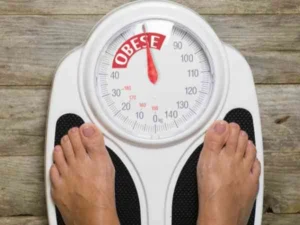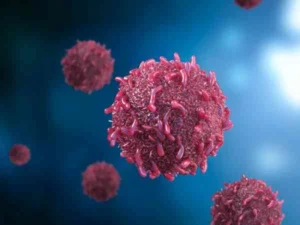Overview
The heart and its blood vessels are made up of a number of problems that affect the cardiovascular system. Cardiovascular disease (CVD), also known as heart disease, includes several diseases such as coronary artery disease, cerebrovascular disease, peripheral artery disease, and aortic sclerosis.
What Causes Cardiovascular Disease?

CVD often occurs due to atherosclerosis, a disease that causes plaque to build up in the arteries. Lifestyle factors such as lack of exercise and poor nutrition contribute to its development. Smoking, high cholesterol, high blood pressure, diabetes, and obesity are the main risk factors. Family history, age, and gender also play a role. Cardiovascular disease is one of the most common causes of death worldwide. Millions of people die from it each year. It has been the leading cause of death in the United States for decades.
Understanding Early Heart Disease

Wouldn’t it be great if our bodies could give us clear signals when something is wrong, especially with the heart? Unfortunately, it’s not that simple. If you notice the warning signs, your heart may already be in trouble.
Early heart disease is not necessarily what you think it is. It’s not about feeling uncomfortable. It’s about underlying conditions like high blood pressure, cholesterol, triglycerides, blood sugar etc. These are the real culprits behind heart problems. Plaque builds up inside your arteries without you even realizing it, putting strain on your heart.
But the good thing due to Cardiovascular Diseases Symptoms it can be detected early. There are subtle signs before it develops into a full-blown disease. Early treatment can help prevent serious heart problems in the future.
Heart diseases don’t necessarily need your attention in the early stages. But as the condition progresses, you may start to experience symptoms such as:
- Unusual tiredness
- Temporary chest discomfort
- Difficulty sleeping
- Shortness of breath
- Dizziness
- Leg pain during activity
- Palpitations
- Swelling in the legs or stomach
- Need to urinate at night
These signs may vary depending on the type of heart problem you have. Chest pain may indicate coronary artery disease, and leg pain may indicate peripheral artery disease. The key is to act before symptoms appear, rather than waiting for them to appear. Don’t wait until it’s too late to take care of your heart. There is a lot you can do to protect your heart through lifestyle changes and treatments.
Women and Heart Disease

Simply put, women generally develop heart disease later than men, yet heart disease remains the leading cause of death in women. As women age, their risk increases, especially after menopause, when estrogen levels decline. Women who undergo early menopause, either naturally or surgically, are twice as likely to develop heart disease than women who do not. Additionally, middle age comes with other risk factors, such as high blood pressure. If a woman had high blood pressure (preeclampsia) during pregnancy, she is at increased risk of heart disease later in life.
Although this risk factor cannot be controlled, it is important that women with a history of preeclampsia closely monitor their blood pressure and try to lower other risk factors for heart disease.
List of 15 common symptoms of cardiovascular disease to look out for!

- Chest pain or discomfort: Chest tightness, pressure or pain can indicate a heart problem. Even if it is mild, it should not be ignored.
- Shortness of breath: If you experience shortness of breath, especially during daily activities, your heart may not be working properly.
- Fatigue: If you feel unusually tired even after getting a good night’s sleep, this could be a warning sign of heart disease.
- Dizziness or lightheadedness: If you feel dizzy or lightheaded, especially when you stand up quickly, it could be your body’s way of telling you that something is wrong with your heart.
- Irregular heartbeat: If you notice your heart pounding or racing for no apparent reason, get it checked out.
- Swelling in the legs, ankles, or feet: Fluid buildup in the lower legs may indicate a problem with the pumping function of the heart.
- Pain, numbness, or tingling in the arms or legs: These symptoms may be a sign of poor circulation and may be related to heart problems.
- Cold sweats: Cold, clammy sweats, especially if accompanied by other symptoms, may indicate heart problems.
- Nausea or indigestion: Feeling unwell or indigestion can be a subtle sign of heart problems, especially if not related to diet.
- Pain in the jaw, neck or back: Pain in these areas, especially if it’s unusual for you, could be a sign of a heart attack, especially in women.
- Fainting or syncope: Fainting or feeling like you are about to faint may indicate reduced blood flow to the brain and may be related to heart problems.
- Sleep problems: Sleep problems, especially if accompanied by other symptoms, may be a sign of heart problems.
- Persistent cough: If your cough won’t go away, especially if it produces pink or white mucus, it may be a sign of heart failure.
- Decreased exercise tolerance: If you find it harder to exercise than usual or you get out of breath more easily, this could be a sign of an underlying heart problem.
- Cyanosis: A bluish discoloration of the skin, especially of the lips and fingertips, may indicate that your blood is not getting enough oxygen and could be a sign of heart disease.
Summing up,
Heart health is essential to overall well-being. If you notice any of these Cardiovascular Diseases Symptoms, don’t ignore them. Instead, listen to your body and see a doctor. Early detection and treatment are important for heart health.






